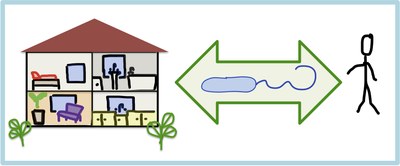susanna.remold.research
|
|
CURRENT RESEARCH We work on the evolution of microbes, in particular ones associated with human disease. Currently our lab focuses on bacteria in the genus Pseudomonas from human homes and from the people and pets living in them. We combine studies of the distributions of these organism, studies of their patterns of phenotypic variability, and investigations of the genetic underpinnings of these phenotypes, and the evolutionary pressures that help mold them. We have sampled human homes for many years, looking for members of the genus Pseudomonas. We have found that recovery of these bacteria varies among houses, among types of places within houses, as well as among seasons. We have also found that the opportunistic pathogen Pseudomonas aeruginosa is found most frequently in drains, rather than being widespread around the home. This is important because it suggests that for susceptible people, such as immunocompromised people or people with cystic fibrosis, controlling exposure to P. aeruginosa in drains may be an important contributor to decreasing the risk of infection. Though we continue to sample human homes, we are also working with our over 1000 isolates of household Pseudomonas, to understand the phenotypic differences that may determine which strains are found where.In some of our work we seek to understand differences that cause some bacteria to be more generalist, and more likely to be recovered in many types of places in the home, relative to specialists that are found in fewer places. In another set of studies we focus on strains of the opportunistic pathogen P. aeruginosa, exploring differences between environmental strains, mostly recovered from drains, and strains associated with vertebrate hosts, many of which are living as pathogens. |
|

